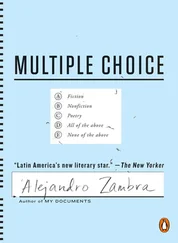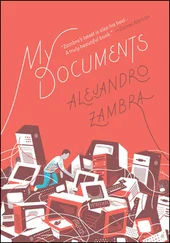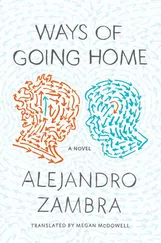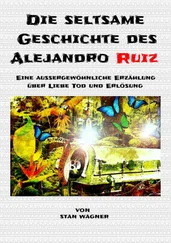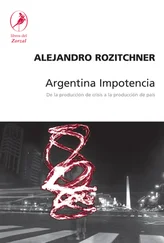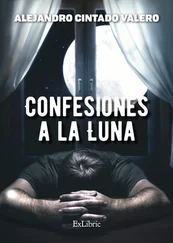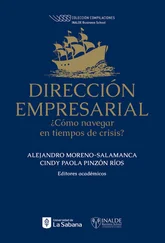Since his father and mother refuse to give him money, Julio decides to become a vendor on the sidewalk of Plaza Italia. It’s an efficient business: in barely a week he sells almost half his books. He is paid especially well for the poems of Octavio Paz (The Best of Octavio Paz) and Ungaretti (The Life of a Man) and for an old edition of The Complete Works of Neruda. He also parts with a dictionary of quotations edited by Espasa Calpe, an essay by Claudio Giaconi on Gogol, a couple of Cristina Peri Rossi novels he never read, and, lastly, Alhué by González Vera, and Fermina Márquez by Valéry Larbaud, two novels he had in fact read, and many times, but that he would never read again.
He uses some of the money from the sale for his research on bonsais. He buys specialized manuals and magazines, and deciphers them with methodical anxiety. One of the manuals, perhaps the least useful but also the most favorable for an amateur, begins this way:
A bonsai is an artistic replica of a tree, in miniature. It consists of two elements: the living tree and the container. The two elements must be in harmony and the selection of the appropriate pot for a tree is almost an art form in itself. The tree can be a vine, a shrub, or a tree, but it is normally referred to as a tree. The container is normally a flowerpot or an interesting chunk of rock. A bonsai is never called a bonsai tree. The word already includes the living element. Once outside its flowerpot, the tree ceases to be a bonsai.
Julio memorizes the definition, because he likes the notion that a rock could be considered interesting and the diverse points made in the paragraph seem fitting. “The selection of the appropriate pot for a tree is almost an art form in itself,” he thinks and repeats, until he convinces himself that essential information lies in these words. He becomes ashamed, then, of Bonsai , his improvised novel, his unnecessary novel, whose protagonist doesn’t even know that the selection of a flowerpot is an art form in itself, that a bonsai is not a bonsai tree because the word already contains the living element.
Caring for a bonsai is like writing, thinks Julio. Writing is like caring for a bonsai, thinks Julio.
In the mornings he searches, reluctantly, for a stable job. He returns home in the middle of the afternoon and barely eats something before devoting his attention to the manuals: he tries to go about it as systematically as possible, invaded as he is by a hint of fulfillment. He reads until sleep overcomes him. He reads about the most common ailments of bonsais, about the pulverization of the leaves, about pruning, about the wire netting. He obtains, finally, seeds and tools.
And he does it. He grows a bonsai.
It’s a woman, a young woman.
That’s all María manages to know about Emilia. The dead person is a dead woman, a young woman, someone says at her back. A young woman has thrown herself in front of the metro at Antón Martín. For a moment María thinks of approaching the place where it occurred but she immediately represses the impulse. She exits the metro thinking about the alleged face of that young woman who just committed suicide. She thinks of herself, at one time, sadder, more desperate than now. She thinks of a house in Chile, in Santiago de Chile, of a garden at that house. A garden without flowers or trees that nevertheless has the right — she thinks — to be called a garden, undoubtedly it is a garden. She recalls a song by Violeta Parra: “The flowers of my garden should be my nurses.” She walks toward the Fuentetaja bookstore, because she’s made a date to meet at the Fuentetaja bookstore with a suitor. The suitor’s name doesn’t matter, except that en route she thinks, suddenly, of him, and of the bookstore and of the whores on Montera street and also of other whores on other streets that are beside the point, and of a movie, of the name of a movie she saw five or six years ago. That’s how she starts to get distracted from Emilia’s story, from this story. María disappears on the way to Fuentetaja bookstore. She moves away from Emilia’s corpse and begins to disappear forever from this story.
She’s gone.
Now Emilia remains, alone, interrupting the operation of the metro.
Very far from Emilia’s corpse, there, here, in Santiago de Chile, Anita listens to yet another of her mother’s regular confessions, her mother’s conjugal problems, that seem interminable and that Anita analyzes with angry complicity, as if they were her own problems and in some ways relieved that they were not her own problems.
Andrés, on the other hand, is nervous: in ten minutes he’ll receive a medical check-up, and though there are no minor indications of illness, it suddenly seems clear to him that during the following days he will receive horrific news. He thinks, then, of his daughters, and of Anita and someone else, another woman whom he always remembers, including when it seems inopportune to remember anyone. Right then he sees an old man emerge with a satisfied expression, calculating his steps, patting his pockets in search of cigarettes or coins. Andrés understands that his turn has arrived, that it’s his turn for routine blood tests, and later the routine X-rays, and soon, perhaps, the routine scan. The old man that just came out is Gazmuri. They have not greeted each other, they haven’t met nor will they meet. Gazmuri is happy, as he is not going to die: he leaves the clinic thinking that he is not going to die, that there are few things in the world as pleasant as knowing that you are not going to die. Once again, he thinks, I’ve made it by the skin of my teeth.
On the first night in the world where Emilia is dead, Julio sleeps poorly, but at that point he is already accustomed to sleeping poorly, due to anxiety. For months he’s been waiting for the moment when the bonsai will rise toward its perfect form, the serene and noble form he has foreseen.
The tree follows the path marked by the wires. In a few years, Julio hopes, it will be, at last, identical to the drawing. He takes advantage of the four or five times he wakes that night to observe the bonsai. In between, he dreams of something like a desert or a beach, a place with sand, where three people look toward the sun or toward the sky, as if they were on vacation or as if they’d died unawares while sunbathing. Suddenly a purple bear appears. A very large bear that slowly, heavily approaches the bodies and with the same slowness starts to walk around them, until it has completed a circle.
I want to end Julio’s story, but Julio’s story doesn’t end, that’s the problem.
Julio’s story doesn’t end, or rather it ends like this:
Julio finds out about Emilia’s suicide a year or a year and a half later. The news is brought by Andrés, who has gone with Anita and the two girls to the children’s book fair in Parque Bustamante. Julio is at the Editorial Recrea stand, working as a vendor, a poorly paid yet simple job. Julio seems happy, because it’s the last day of the fair, meaning that starting tomorrow he can return to caring for the bonsai. The meeting with Anita involves a misunderstanding: at first Julio doesn’t recognize her, but Anita thinks he’s faking it, that he recognizes her but is displeased to see her. She clarifies her identity with some annoyance and, in passing, points out that she’s been separated for several years from Andrés, whom Julio vaguely met during the last days or last pages of his relationship with Emilia. Clumsily, to make conversation, Julio asks for details, attempts to understand why, if they are separated, they are engaging, now, in a wholesome family outing. But neither Anita nor Andrés has a good answer for Julio’s impertinence.
Right at the time for goodbyes, Julio asks the question he should have asked at the start. Anita looks at him, nervous, and doesn’t answer. She goes away with the girls to buy candied apples. Andrés is the one who stays, and he poorly summarizes a very long story that nobody knows well, a common story whose only peculiarity is that no one knows how to tell it well. Andrés says, then, that Emilia had an accident, and since Julio doesn’t react, doesn’t ask him anything, Andrés specifies: Emilia is dead. She threw herself in front of the metro or something like that, the truth is I don’t know. She was caught up in drugs, it seems, although not really, I don’t think. She died, they buried her in Madrid, that much is certain.
Читать дальше

